Sonny Turner of The Platters – Picked to Replace A Legend
by Kirk Lang
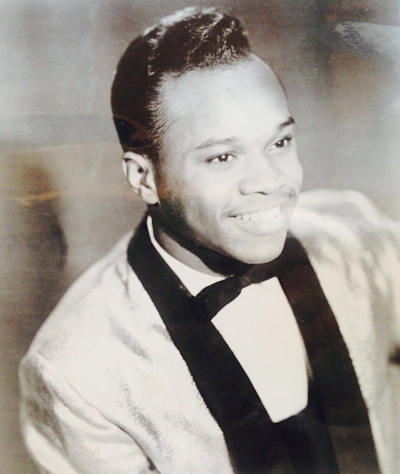 As the son of a former professional fighter, Sonny Turner knows a thing or two about not giving up. It’s in his blood. The former lead singer of The Platters – he replaced the legendary Tony Williams in late 1959 – isn’t even thinking of retirement. He didn’t let tonsil cancer stop him and he isn’t letting bladder cancer, which struck a year later, sideline him.
As the son of a former professional fighter, Sonny Turner knows a thing or two about not giving up. It’s in his blood. The former lead singer of The Platters – he replaced the legendary Tony Williams in late 1959 – isn’t even thinking of retirement. He didn’t let tonsil cancer stop him and he isn’t letting bladder cancer, which struck a year later, sideline him.
“I’m still going,” he said. “Still getting treatments. Still looking good. I still feel strong.”
In fact, if it wasn’t for a worldwide pandemic that has brought a halt to much of the entertainment business “we’d be working,” said Turner.
He added, “The world is full of people that are in worse condition than whatever many of us may be dealing with, so right now, at this stage, as I speak to you, I’m grateful, I’m thankful, I’m blessed. I’m doing Ok overall. And I’m still singing. I’ve still got that gift. Aint that great?”
A man of strong faith, Turner’s love of music began in the church as well as his own home, where his mother often rehearsed songs with her gospel group The Live Wire. Born in Fairmont, West Virginia, Turner’s family relocated to Cleveland, Ohio when he was around five years old.
He remembers The Live Wire, comprised of four ladies and two men, having a “very powerful sound.”
Turner, 81, has his mom to thank for the success he has enjoyed as an entertainer.
“I feel that it was a blessing passed upon me,” he said, “Because I loved it from the beginning. I always loved music and the sound of music and the quality of music.”
Turner would join the children’s choir when he was around 11 or 12 years old.
“I was kind of shy at first,” he said. “I needed the support of the other singers, the other members of the family, and then I started to emerge and they told me, ‘You’ve got a lead voice.’”
In addition to trying to emulate the grown-ups that sang on Sundays, and with mother at home, he’d listen to records by The Soul Stirrers, The Harmonizing Four, The Mighty Clouds and The Symphony Tones and try to mimic them. He realized early on he wanted to be a professional singer.
“After I kept getting the compliments and the encouragement, that confirmed it for me,” he said.
Upon hearing R&B groups like Billy Ward and his Dominos, The Five Keys, The Harptones, The Drifters and The Flamingos, Turner realized he could make singing a career if he set his mind to it. Turner joined a local vocal group called The Metrotones while still in junior high school.
“We’d do doo-wop singing at the boys gym class, in the bathroom down there,” he said. “And we’d sing out on the corner at night. We actually sang under the street light at the barber shop in front of our apartment building. And we would get out there and doo-wop and try to emulate all the great groups.”
He added, “We got the neighborhood behind us, we started doing amateur shows, then we started performing for musical contests at the local theater. They used to have an amateur night at the theaters when we were young, in the ‘50s, at the Fort North and Globe Theatres.
“Between motion pictures they’d take a break and do a collection for the March of Dimes. And then some of the promoters that were looking for talent, they’d have a little talent show. They’d have four or five groups, singers or performers, entertain the audience.”
For a young Sonny Turner, even this bit of local celebrity was a thrill.
“Major. Major. Major,” he said. It gave you a sense of confidence. It enhanced your ego.”
The group remained together into and through high school and during that time caught the ear of Texas-based Don Robey, talent scout for Russell Cole, who wanted to manage the group.
“We didn’t know anything about that, about business,” said Turner. We just knew we’d get an opportunity to sing. Then when they started paying us $5 a piece, that was something! (laughs).
The Metrotones of course did local shows but as word spread, they got to see the world beyond Cleveland, and then behind Ohio.
“We went to Toledo and performed, and at some of the local talent shows there, and Akron, and we kept going” said Turner. “We got Russell to start talking to people and what have you, and we got jobs, started getting actual jobs as a singing group. We went to Buffalo, New York. Matter fact we went to Canada as the Metrotones one time, did a couple of different shows.”
Turner added, “It was exciting, but we were in an old raggedy ’49 Oldsmobile. It was falling apart on the road. You talk about paying your dues my friend, oh, let me tell you. And sharing a hamburger and French fries. We didn’t have much money at all. We could hardly buy gas.”
However, as the Metrotones popularity increased, members found themselves making upwards of $25 a person, then $40, then $50, according to Turner.
“I know that we were being cheated but we thought we were doing something,” said Turner, who had family members trying to tell him he should have been taking home more.
“People would take advantage of you back in the day,” he said.
What was the most they ever earned individually?
“We got up to $85, $100 a person,” said Turner. “That’s when we got older.”
Even if the money wasn’t perfect, Turner’s time with the Metrotones proved meaningful.
“Here’s the spiritual thing where God had put my foot on the path of where I was to go,” said Turner. “I didn’t know it at the time.”
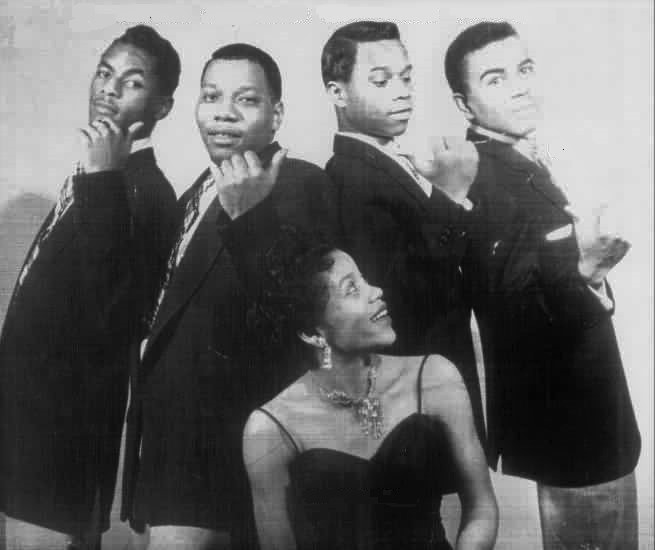
The Metrotones 1956
He noted the Metrotones had three male vocalists and one female vocalist, just like the Platters, so it was a perfect training ground for his eventual taking over Tony Williams’ position as the lead singer of the world famous vocal group. In addition, the Metrotones covered a number of the Platters’ songs in their act.
Furthermore, Turner fell in love with the Metrotones’ female singer, Luvenia Eaton, and they eventually married and had two children together. The only thing that broke up the unity of the group was two members being drafted into the United States Army.
Turner and Eaton continued singing, but as separate acts. Turner often linked up with a revue.
“You know, they had dancers, singers and so on, and I was hired in about two or three different revues as a soloist,” he said. “I got a great deal of experience that way, singing with many different shows and traveling.” He was also the opening act for numerous nightclubs in the Cleveland area, but especially Gleason’s Musical Bar and the Chatterbox, which were situated on the same block.
“You built up so much experience as a solo act and meeting all these great entertainers that gave you advice,” said Turner. He met, among others, Sarah Vaughan, Dinah Washington, B.B. King and Little Willie John. Later, as a Platter, the list of people he rubbed elbows with grew even larger, and would include people like Sammy Davis Jr, Elvis and Frank Sinatra. But while still a solo act, he was fortunate to meet one of his all-time musical heroes, Jackie Wilson. However, it didn’t happen backstage at a club, even though Turner had a gig scheduled at the Rose Room, located within Cleveland’s Majestic Hotel.
“I had just turned 22,” said Turner. “I was leaving rehearsal and there was a combination drugstore inside the hotel. The Shortest Drugstore, that’s what they called it. And I saw this guy with a freshly done do, hair coiffed, wigs and all, and he had a dynamite top hat on.
“And I said, ‘That guy looks like Jackie Wilson.’ And then it was, ‘Holy mackerel, that is Jackie Wilson.’ I walked over to him, introduced myself, told him he’s one of my heroes, and he’s really nice, and he started, ‘Are you kidding me?’ I said, ‘No.’ He said, ‘what’s your name?’ I told him and I told him I was singing at the Rose Room and all that.”
After further friendly banter, Turner discovered Wilson was in the drugstore looking to find some shaving cream, more specifically Magic Shave.
“It keeps you from bumping up,” said Turner. “It stunk to high heaven and I think that was one of the reasons the creators of it changed it, and put some kind of fluid in it to take the smell away. It smelled like ten years of dog doo doo.”
As Turner met Wilson, and then not long after performed on a local news program with Della Reese, “I knew I was on a pathway, you know what I’m saying?”
Turner’s hard work and determination would get him a gig as the opening act for all the big-time entertainers that performed at The Music Box on Euclid Avenue. On one particular night that would change Turner’s life, he opened for comedian Redd Foxx.
“Unbeknownst to me, there was Bill Crane, he worked for Buck Ram (manager of The Platters),” said Turner. “And he had an office in downtown Cleveland at the Hippodrome building, where the Hippodrome Theatre was. Anyway, I finished the show,. Long story short, he called me over and he had been sitting there watching me, and he said, ‘You did a great job’ and I said, ‘Oh thank you so much. I’m trying. I’ve been watching all the greats’ After all the compliments he said ‘My name’s Bill Crane…have you heard of The Platters?’ I said, ‘Are you kidding? Our group fashioned their style after the Platters. Matter fact, we sang Platters songs. I said, ‘Wow, you know the Platters?’
“He said, ‘I am scouting for a lead singer for Buck Ram, the group’s manager.’”
Turner had read in the trade papers that Williams was possibly going to be leaving the group and go out as a solo act, but Crane’s appearance at the Music Box cemented what had been reported.
“He said, ‘I’d like to have you talk to Buck Ram. I think you’d fit the Platters,’” said Turner. “And I said, ‘Yeah right.’ And I started laughing and I said ‘OK, thanks a lot.’ I thought he was putting me on.”
Turner took Crane’s business card, consulted his mother, who told him, “You’ve got everything to gain and nothing to lose.”
Crane subsequently asked Turner to record some demos, so Turner did “Smoke Gets in Your Eyes,” “Only You,” and three other songs.
Turner, still in shock, found it hard to believe his demos were going to reach Ram’s office. Crane emphasized to Turner to “keep yourself available.”
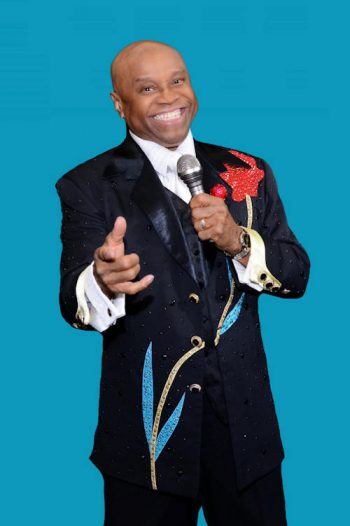 In addition to the recordings, Ram also received a studio portrait of Turner wearing a tuxedo. Crane relayed that Ram was impressed with Turner’s vocals as well as the way he looked. Not long after, Turner, Crane and Turner’s mother caught a train to Milwaukee, Wisconsin, as the Platters would be performing at Club Henrys.
In addition to the recordings, Ram also received a studio portrait of Turner wearing a tuxedo. Crane relayed that Ram was impressed with Turner’s vocals as well as the way he looked. Not long after, Turner, Crane and Turner’s mother caught a train to Milwaukee, Wisconsin, as the Platters would be performing at Club Henrys.
“We stayed at a hotel and when we were approaching the club, we see the marquee, a big beautiful lit up marquee, it said, ‘Tonight The World Famous Platters,’ and I made up my mind, and my heart jumped in my mouth,” said Turner.
Turner would spot the Platters members – Zola Taylor, Herb Reed, Paul Robi, and David Lynch – sitting at a large booth along with Ram and Ram’s secretary.
Ram asked Turner who was managing him. He responded, “I don’t have a manager. I’m not that important (laughs). Ram then surprised Turner with a request to audition that night, in front of the packed crowd at the swank supper club.
“All this was just like a dream,” said Turner, who at the same time was slightly nervous.
Turner was going to perform between the Platters’ sets and would be accompanied by the Platters’ musical conductor/pianist on “Smoke Gets In Your Eyes.”
He figured the dressed up patrons would be too busy dining, chatting and so forth and thus not that many eyes would be on him. This was his attempt to ease his nerves, since Tony Williams was in the building, though behind the stage curtain.
“So I went up there and I sing and do you know I got applause?” said Turner. “I couldn’t believe it. And I was trying to get off the stage. But they wanted me to do another one.”
Turner’s next tune was “Alright, OK, You Win” and he ended his audition with the ballad, “If It’s The Last Thing I Do.”
How did he go over?
“Big big applause,” said Turner. Big applause. And they were eating. ‘Yeah! Bring that boy back! Bring that boy back!’ You know what I mean? People hollerin’ all kinds of stuff. Holy mackerel.”
And as Turner walked off the stage steps, there was Tony Williams, the man who in large part made the Platters one the most successful vocal group of the 1950s.
“First of all, walking toward him, I thought he was going to stalk me or something,” said Turner, “Or tell me I sounded like crap. You know? But he smiled. He stuck out his hand to shake my hand and he said, ‘You can really sing.’ He said, ‘That was great.’ He was really sweet, really nice to me.”
When Turner met up with Crane backstage, he was told “well they want you, can you stay overnight?”
Turner responded, “I can stay til wintertime (laughs).” Turner barely had any money. Crane told him “they want to give you a per diem.”
“I said, ‘A what?’ He said, ‘A per diem. Give you some expense money.”
“I said, ‘They want to give me some expense money? You mean I sang three songs and I’m to get $200?” said Turner.
Turner was asked if he could follow the Platters to Cincinatti, Ohio where they would be “working at a club across the river in Huntington, Kentucky called The Casino.” The group and management talked to him about longevity, his career, contracts, everything under the sun.
“It was a long talk,” said Turner. Also, Turner had to watch the group perform two nights in a row.
“Man they were smooth and classy,” he said. The Platters were booked at The Casino for an entire week but had the following week off. During that time, Turner rehearsed with the group vigorously.
“I don’t know what the particular deal was with Tony but he was leaving immediately and they wanted me, they stuck me in and they ordered tuxedos, new suits, just to put me in the group,” said Turner.
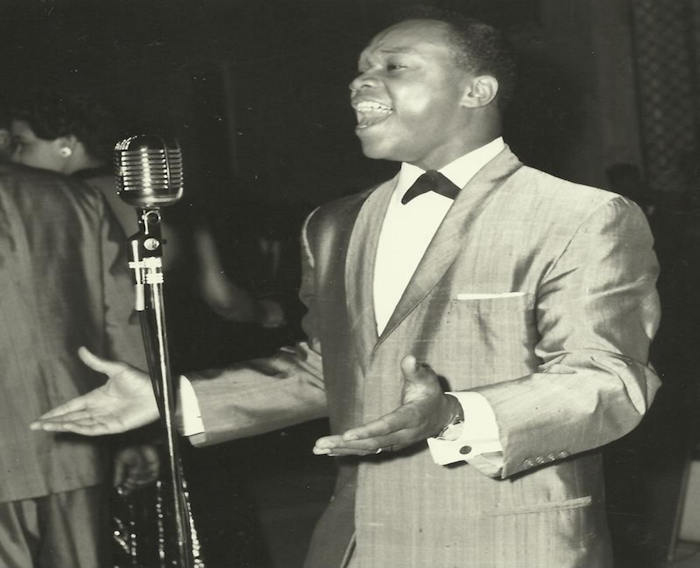
Turner’s first gig as an official Platter was in Washington D.C. at The Lotus Club.
“I never will forget,” he said. “Upstairs supper club. Dynamite. Real swank. And the closing act was Sammy Davis Jr.”
Asked to recall that debut gig as the lead singer of the world famous Platters, Turner said, “Indescribable. You ever been to Heaven? (laughs). You ever been to Heaven coming out of a dream? It was all those things and then there were my thoughts of my spiritual belief in God that pulled me together. This is for you. This is your gift. Then I thought about my mother and the way God wants you to succeed and bless you.”
Turner, who beat out 20-something other singers for the job, lost his mother very soon after he signed the contract to become a Platter. Just before her passing, he remembers her saying something to the effect of, “You’re in the right place so I don’t have to worry about you.”
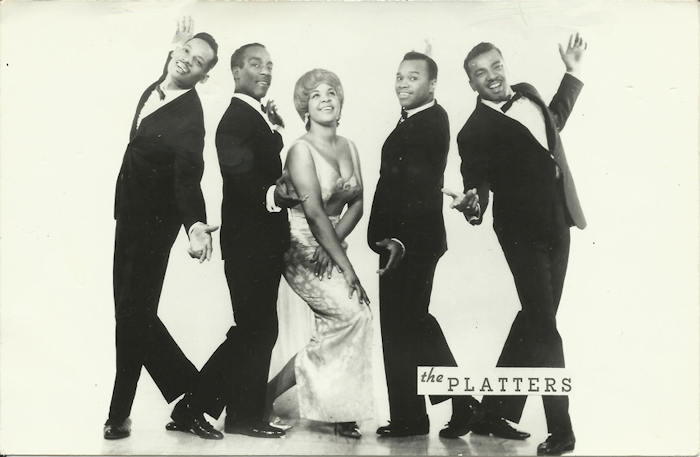
Turner makes a point to remind today’s music fans that the Platters weren’t merely famous in this country. They were truly world famous, he said.
“Down through the years I learned to sing in different languages, traveling with the Platters,” he said. “They traveled the world man! You’re talking about a dream come true. You’ve got to know.”
He added he never thought he’d reach such a position in the music business, becoming the face of the Platters, “the guy that sings The Great Pretender.”
Turner became a hometown hero, written about in the local papers and also across the nation.
“Jet magazine even reported on it,” he said. “I was in Jet magazine! Are you kidding?”
Everyone wasn’t part of the victory parade though. The bigwigs at Mercury Records were hesitant to release any material with the Platters’ new lead singer.
“Mercury didn’t want me,” said Turner. “They thought I was good but they didn’t think I was another Tony Williams.”
Ram went to bat for Turner and filed a lawsuit against Mercury when the company was looking to nix a planned recording with Turner in the lead position. Mercury had argued it had a right to determine who sings what in the recording studio and demanded Williams sing lead on at least 50 percent of the songs. The Platters apparently won the lawsuit, because Turner would sing lead on all seven songs recorded at a July 1961 session. However, Mercury for a time only released songs on which Williams sang lead.
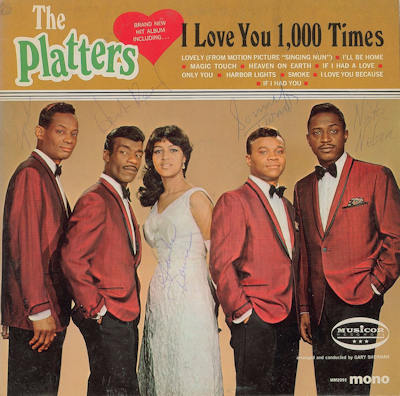 Album-wise, Turner recalls recording about four albums for Mercury, including a Christmas album and a Spanish album called The Platters Sing Latino. However, once the group made the switch to Musicor in 1966, the Platters, with Turner on lead, once again attained chart success, most notably with “With This Ring,” which scored in the Top 40 of both the R&B and pop charts in 1967. Turner showed he could sing outside the box of the Tony Williams sound, as “With This Ring” sounded like it could have been a track on a Four Tops album (Motown). In fact, it was arranged for the Platters by Motown-affiliated Sonny Sanders. The Platters also found success with “I Love You 1000 Times” and “Washed Ashore.”
Album-wise, Turner recalls recording about four albums for Mercury, including a Christmas album and a Spanish album called The Platters Sing Latino. However, once the group made the switch to Musicor in 1966, the Platters, with Turner on lead, once again attained chart success, most notably with “With This Ring,” which scored in the Top 40 of both the R&B and pop charts in 1967. Turner showed he could sing outside the box of the Tony Williams sound, as “With This Ring” sounded like it could have been a track on a Four Tops album (Motown). In fact, it was arranged for the Platters by Motown-affiliated Sonny Sanders. The Platters also found success with “I Love You 1000 Times” and “Washed Ashore.”
Turner is proud of the fact the Platters charted thrice in the ‘60s, with him on lead, as musical styles were changing.
“I love all of them equally,” he said. “It’s one of the big compliments of my life. I love all three of those records man.”
To be a part of the Platters legacy, Turner calls it a “magic blessing.”
“It was something that I dreamed of doing, and hoping for it to come true for me,” he said. “And I put the work in. Because you’ve got to be true to yourself. It’s not just a gimme. You’ve got to work at it.” It wasn’t that easy, you know what I mean? I was prepared for it.”
He’s seen the world, be it France, England, Germany, Russia, Poland, Italy, you name it.
“I didn’t know how much world famous was world famous,” said Turner. “I traveled to places I had only read about in school. And this was a quality scale. The highest you can get. I’m talking in the presence of royalty. European royalty and people of high stature in life, movie stars and such.”
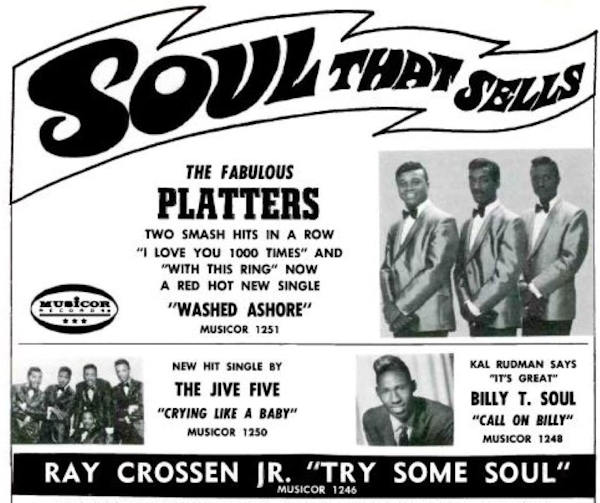
He got a big kick out of meeting, among others, Harry Belafonte, Lena Horne, Dinah Washington, Sarah Vaughan, Count Basie, Duke Ellington and Elvis Presley.
“Elvis was a Platters fan,” said Turner. “I had a chance to hang out with Elvis after work. It was in the hotel room. He had a whole d*mn floor over at the Hilton.”
The Platters were performing at the nearby Sahara casino and Elvis had his friend Joe Esposito pay Turner and company a visit to invite them over.
“He said, ‘Elvis wants to see you man. He said bring your group, your guys, he said bring anybody you want to, but he wants you to come over and hang out, ’” said Turner.
Elvis was hosting a cocktail party. Turner remembers actress Ann Margaret being there, as well as Ed Parker, Presley’s karate instructor.
“It was a jam,” said Turner, who recalls some singing but more so listening to music and talking about old times.
“He gave me a belt. I got a belt from him,” said Turner. “It was white with a big buckle with eagles on it.”
He added that Elvis was just a “regular guy.”
“He was as nice as he could be,” said Turner. “He acted like he knew you. He wasn’t afraid to tell you he was a fan of the Platters.”
Turner would part ways from the Platters, which had already seen various personnel changes, in 1970. He subsequently established Sonny Turner and Sound Limited.
“It worked out good,” he said. “Then I had my own show and directed my own performance and everything. It was great.” Later on, it simply became Sonny Turner, former lead singer of The Platters.
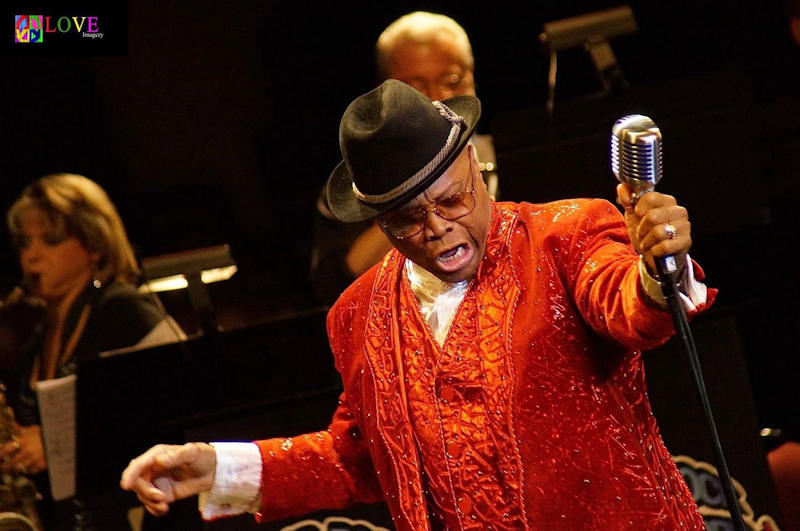
Until something changes with this pandemic everyone is facing, the Las Vegas-based Turner will be spending more time at home, as there is no tour schedule at this time. He will get more quality time with Roxie, his wife of 13 years. However, as a decades-long performer, so accustomed to the energy of an appreciate crowd, Turner admits he’s “anxious to go back to work.”
Asked if there are any more goals left to accomplish, he said, “The only other goal I’ve got is just to continue what I’ve been able to do, and to survive and take care of myself and live as long as I can.”
A self-described former “dancing fool,” Turner, who used to do spins and drop right into splits, is grateful he can still move a little bit.
“I’m grateful I’m still able to dance and sing when I perform,” he said. “I forget about my ills, my aches and pains. When you’ve got to perform something magical happens. You know, that leg, that muscle that was killing you earlier, you forget about all that.”
